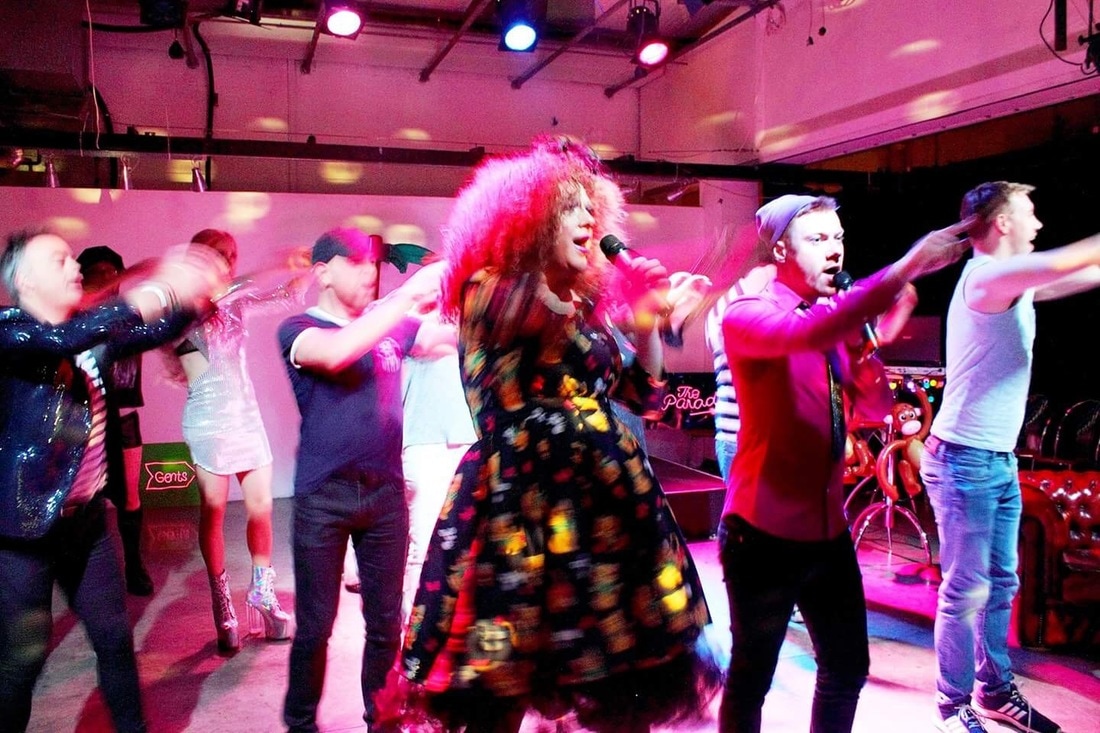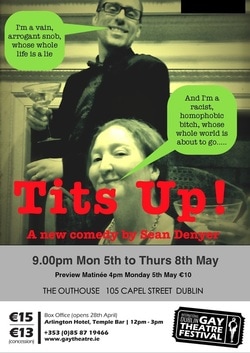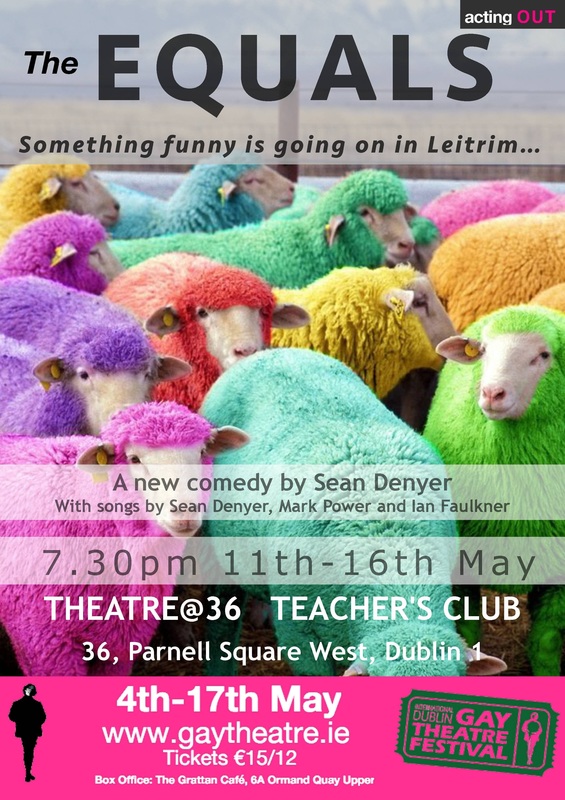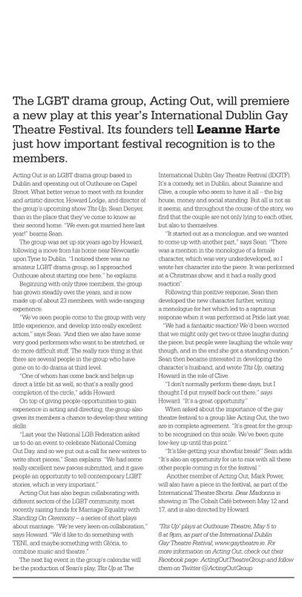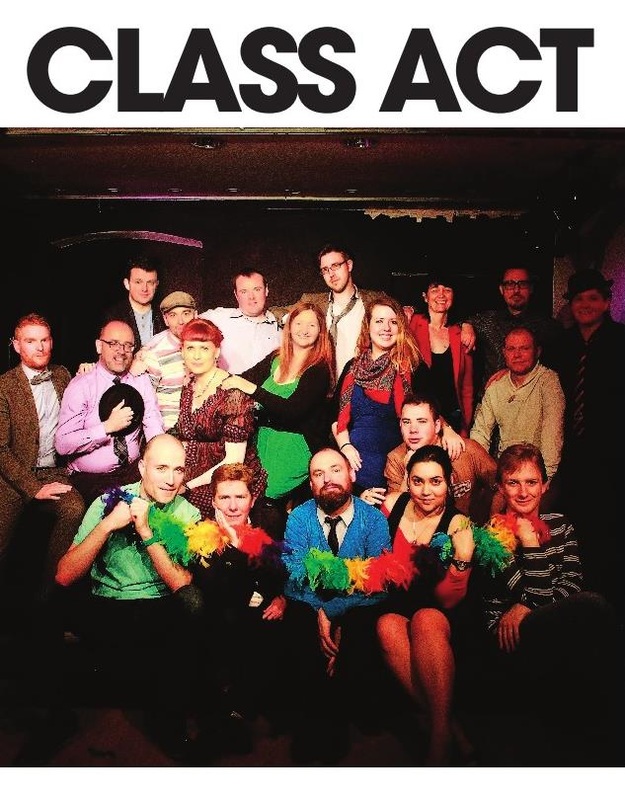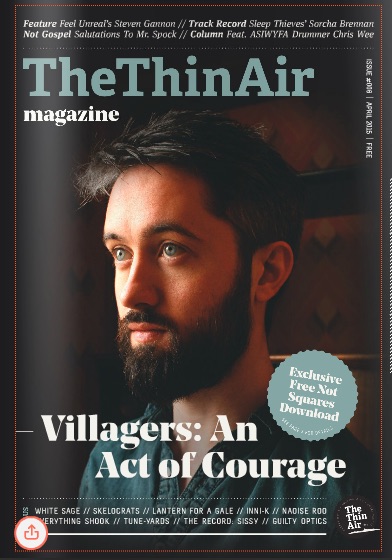Five star review for 25/The Decriminalisation Monologues at Greater Manchester Fringe
“It is a true example of theatre that can change the way you think and it will resonate with me for a long, long time. I urge every festival and theatre to let this production tour as it deserves to be watched by many.”
⭐️⭐️⭐️⭐️⭐️ North West End
Read the full review here
⭐️⭐️⭐️⭐️⭐️ North West End
Read the full review here
Another excellent review for 25/The Decriminalisation Monologues at Greater Manchester Fringe
“The Decriminalisation Monologues is a powerful play and a tribute to the courage of those people willing to challenge everyday injustice.”
British Theatre Guide
Read the full review here
British Theatre Guide
Read the full review here
Passing On
“This is a very important piece of modern theatre, with the humanity of a loving relationship at its heart. It deserves to play to big audiences. Please go see it if you can.”
GScene Magazine
This heart-rending and passionate play is about a gay couple who for once are not facing issues surrounding Aids. This tragic tale of a married gay couple in Ireland centres on their heartfelt wish to have a baby through a surrogate mother, their lawyer friend Jane.
BUT ironically in planning for the future a terrible past is uncovered for Tom, played by Steve Kenneally, and that past leads to the central theme of life, death, guilt, anger and overpowering grief.
This is not a show for the faint-hearted. But written sensitively and in very down to earth language by Sean Denyer, and staged by the Dublin-based award-winning LGBT theatre group Acting Out and Blue Heart Theatre, it investigates the ins and outs of gay parenting in a highly entertaining if dark mood.
In trying to find his biological parents, Tom discovers he has the incurable Huntington’s disease , inherited from his now-dead mother.
The play’s interest is in the working out of this tragedy amid the joy of the birth of their son, and Brian, played by Brian Gaughran is a passionate foil to Tom’s fatalistic view of life.
The play progresses in very short episodes which are occasionally out of time sequence and I wonder if the language couldn’t be heightened slightly to poeticise the tragedy and help us distance ourselves from it. As it is written it is a very difficult piece to sit through calmly and there were many tear-creating moments.
What carries the piece is the wonderful chemistry between the two main actors who go through every emotion possible in a highly believable and electrically charged performance.
Preparing ourselves for one tragedy, we are ultimately faced with an unexpected turn of events which I won’t reveal.
This is a very important piece of modern theatre, with the humanity of a loving relationship at its heart. It deserves to play to big audiences. Please go see it if you can. Passing On is at Sweet Werks 1, in Middle Street until May 24.
”If it can move someone with a cold, cynical heart like myself close to tears, then it is clearly worth checking out.”
Midnight Murphy
Last night I went to see ‘Passing on’ at the Teachers’ Club – my latest excursion to the 15thInternational Dublin Gay Theatre Festival. This was a co-production between the Acting Out theatre group and the Blue Heart Theatre company. Written by Sean Denyer and directed by Howard Lodge it tells the tale of a thirty-something gay couple Brian and Tom. Together for a decade they decide to venture into a brave new world – that of parenthood. Their friend Jane agrees to act as surrogate for the couple. There is a slight worry however. Having been adopted by his parents as a baby, Tom requests a background health check on his biological family – in case of any hereditary conditions; or potential health issues that might inform the decision as to which of the couple will be the sperm donor.
While waiting for the results of this genetics test, Jane falls pregnant. The lab results from the health check come back, turning their happy ever after reverie, into their worst nightmare.
This is a very interesting play exploring many complex issues – surrogacy; genetics; medical ethics; adoption; same sex parenting and euthanasia. The performances were strong and convincing by the lead actors Brian Gaughran (who plays the character of Brian as a rock of common sense and support) and Steve Kenneally (who gives a moving portrayal of Tom who should be looking forward to first time fatherhood with excitement but instead is facing a looming, potentially fatal health ordeal).
Rachel Fayne plays dual roles of the surrogate Jane (well-meaning but potentially intrusive) – and Mary (the outspoken, hilarious ‘howerya’ sister of Brian). The cast is completed by Shane Kavanagh who plays the doctor and social worker.
The set was a simple, with a threatening score playing in the background on the darkened stage, to indicate the narrative progression, with the lights coming up again as each chapter of the story unfolds.
The script was tight, moving at a good pace. I was engaged throughout the piece – it convincingly evoked the terror that a terminal illness can inflict. This was a thought provoking play and it’s easy to see why it has been included in the Gay Theatre Festival as well as the Brighton Fringe Festival next week.
Go see this one – you’ll not regret it. If it can move someone with a cold, cynical heart like myself close to tears, then it is clearly worth checking out.
https://midnightmurphy.wordpress.com/2018/05/17/theatrical-passing-on/#more-19855
While waiting for the results of this genetics test, Jane falls pregnant. The lab results from the health check come back, turning their happy ever after reverie, into their worst nightmare.
This is a very interesting play exploring many complex issues – surrogacy; genetics; medical ethics; adoption; same sex parenting and euthanasia. The performances were strong and convincing by the lead actors Brian Gaughran (who plays the character of Brian as a rock of common sense and support) and Steve Kenneally (who gives a moving portrayal of Tom who should be looking forward to first time fatherhood with excitement but instead is facing a looming, potentially fatal health ordeal).
Rachel Fayne plays dual roles of the surrogate Jane (well-meaning but potentially intrusive) – and Mary (the outspoken, hilarious ‘howerya’ sister of Brian). The cast is completed by Shane Kavanagh who plays the doctor and social worker.
The set was a simple, with a threatening score playing in the background on the darkened stage, to indicate the narrative progression, with the lights coming up again as each chapter of the story unfolds.
The script was tight, moving at a good pace. I was engaged throughout the piece – it convincingly evoked the terror that a terminal illness can inflict. This was a thought provoking play and it’s easy to see why it has been included in the Gay Theatre Festival as well as the Brighton Fringe Festival next week.
Go see this one – you’ll not regret it. If it can move someone with a cold, cynical heart like myself close to tears, then it is clearly worth checking out.
https://midnightmurphy.wordpress.com/2018/05/17/theatrical-passing-on/#more-19855
